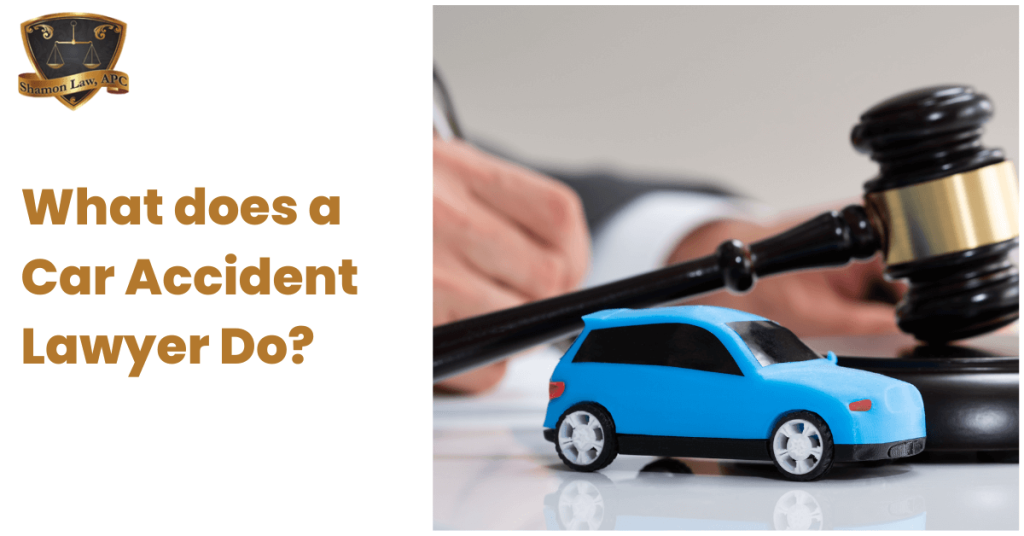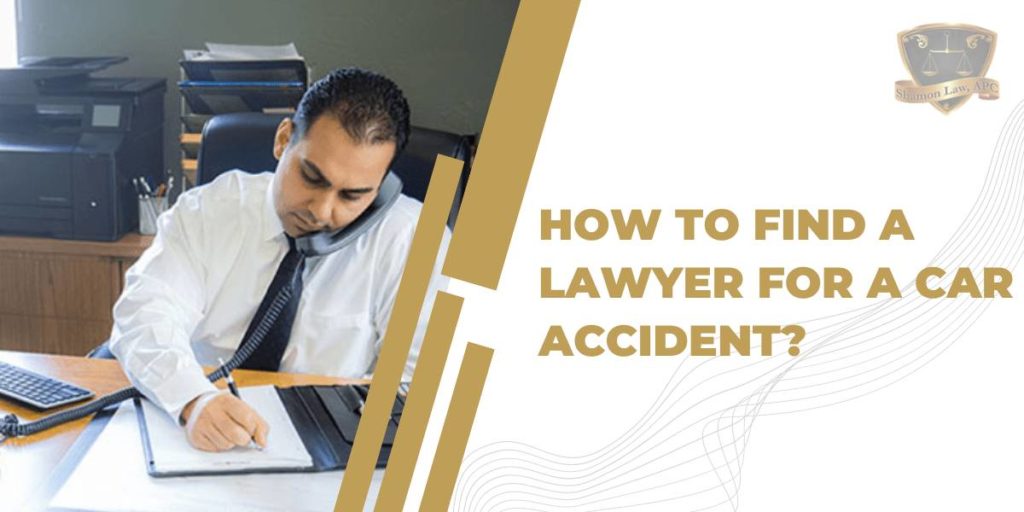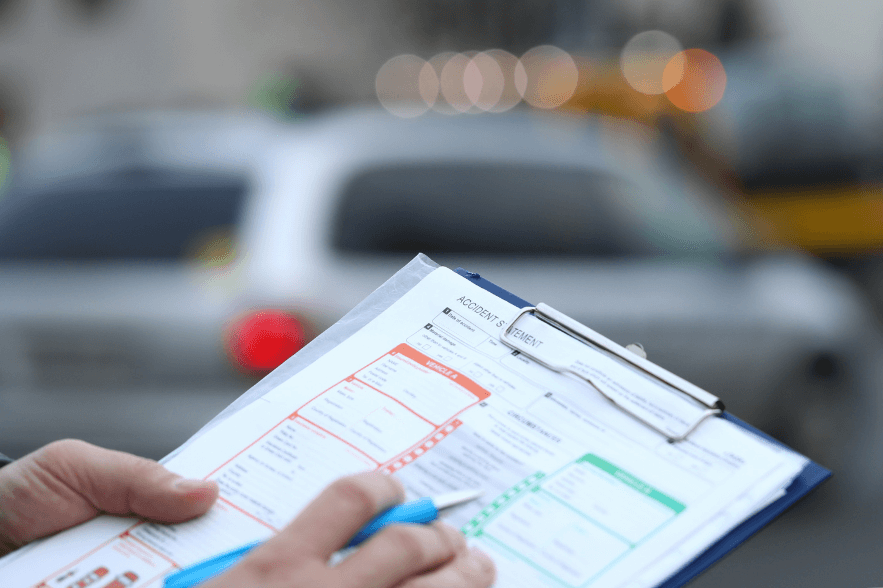If you are injured or your property has been damaged in an accident with other parties at fault, you are legally eligible to claim compensation from your defendant’s insurance company. Anyone can file a personal injury claim; you don’t necessarily need a lawyer, and you have every right to talk to the insurance company. If they don’t agree with you, you also have the right to file a lawsuit against the company or defendant to the court and represent yourself in the trial.
However, before deciding to file a claim without a lawyer, it is important to understand the legal process, the compensation you are entitled to, and the possible risks involved, especially if you are trying to settle a claim without a lawyer.
Although you have every right to go forth with all the legal procedures of filing for a personal injury claim, there are a lot of aspects you need to understand and undergo carefully to avoid any misuse or mistreatment of you and your situation. This blog will tell you everything you need to consider before filing a personal injury claim without a lawyer and help you decide whether you should represent yourself or hire a lawyer.
What You Need to Know Before Representing Yourself
Let us walk you through a list of everything you need to know and thoroughly consider before deciding to represent yourself in your injury lawsuit, no matter the severity of your personal injury litigation.
- Educate yourself about your legal rights and insurance policies. By being familiar with the law and policies, you need to be confident that your claim is what you deserve.
- Understand the personal injury law. Suppose one is injured in an accident where another party (or multiple parties) is at full or partial fault. In that case, the state of California provides the right to claim compensation with the defendant or their insurance company.
- You need concrete evidence to back your claim. Professional insurance companies have been dealing with similar cases like yours for years. They are waiting for you to slip and take advantage of your situation. When they find a lot of gaps in your claim and have the skills to turn the case around on you, and end up with lesser compensation. So do your research and memorize the policy that concerns your case by heart. Gather concrete evidence of the accident and safely keep your medical reports and bills. It will help build a stronger case against the defendant.
- Seek medical attention no matter the severity of your injury. External appearances don’t determine the severity of the injury. Don’t make the mistake of skipping the doctor’s visit. A check-up will reassure you that the injury is being treated on time. Secondly, you need a solid medical report, doctor’s note, and hospital bills to present to the insurance company and claim the amount you deserve.
- Talk to a lawyer, even if you don’t plan on hiring them. There is only enough you can grasp in a field you don’t have experience with. Even when you don’t plan on hiring a personal injury lawyer, at least consult one and ask for advice on how you can go forward to win this case. They will have professional suggestions and help you focus on small but important details.
Injuries that Qualify for a Personal Injury Claim
An injury, or property damage, caused in an accident where another individual/s was at fault or you were under the responsibility of another party is considered a personal injury. It includes intentional torts where the other party intends to injure you or disregards your safety or the safety of your property in their actions.
Injuries or property damage caused by car accidents, truck accidents, motor vehicle or uber accidents, child or elder abuse, medical malpractice, wrongful deaths, dog bites, etc., qualify for a personal injury claim.
You may be entitled to file a personal injury claim if you have suffered an injury or property damage due to someone else’s fault or negligence. Such claims can be made in various situations, including car accidents, truck accidents, medical malpractice, and dog bites. To determine whether your claim is valid, it is important to have an experienced personal injury lawyer evaluate your case. At Shamon Law, our lawyers carefully assess all the factors in your injury case to determine if it is worth pursuing a claim.
Determining if You Have a Case & Filing the Complaint
After your injuries are treated or taken care of in the emergency room or the hospital, you must communicate straight with the insurance company of the defendant who caused the injury. You ask them for certain compensation for your pain and suffering, medical expenses, and property damage. If they do not agree with you, discard your claim or offer severely lower compensation than what you deserve, you have the right to file a complaint against them.
More often than not, even when it is obvious that the defendant is at fault and you are victimized in the accident, insurance companies have ways to turn it around on you to conclude an unfair deal. When representing yourself, you must be extremely cautious and cover every aspect of the case to stay on the safe side.
Gathering all the needed evidence:
Your case is competent if you have concrete evidence. You must document all your medical records and bills carefully to present them to the company and, if necessary, to court. Try to receive as many witness statements as possible from people around the accident. File the police report carefully, as they will come in handy to prove the fault distribution. If the accident was caught in any nearby CCTV camera, access them and present them during the negotiation or the trial. Take pictures of your injuries to prove their severity (if externally visible).
If you don’t have a lawyer, do the documentation yourself:
To determine how solid your case is, you cannot give the defendant’s insurance company the upper hand. If you let them gather evidence and fetch medical documents, there is a higher chance that they will take advantage of it. In most cases of plaintiffs representing themselves, they don’t understand just how clever the games of such companies can be.
You are hit by a driver and become injured. You take your claim to the insurance company, and they consider it and offer you $20,000 compensation. But according to the insurance policies, you deserve $100,000.
You also need to be mindful of the statute of limitation for the deadline for being eligible to file a lawsuit. Often, insurance companies benefit from their opponents’ naive nature and elongate the case to cross the deadline so you will not have a chance to file a lawsuit against them. The statute of limitations for personal injury is 2 years, and that for property damage is 3 years.
Therefore, in such cases, always stay one step ahead of insurance companies and do the research and documentation work yourself. Taking advice from a top personal injury lawyer will help you better understand such laws and policies.
Claim Procedures for Personal Injuries that You Suffered
A detailed understanding of the process and procedures of a personal injury claim is also necessary when representing yourself.
We have compiled 5 quick steps of the claim procedure that you will follow:
- Step 1: Visit your doctor and complete all the medical processes before filing the claim.
- Step 2: Schedule a consultation session with a personal injury attorney in San Diego to present your case and ask for advice on how to proceed. If you need clarification about your rights or the policies, this is the time to clear them out. Ask them to determine the amount of your claim or comparative negligence (fault distribution if you are partly at fault).
- Step 3: Start investigating. Gather all the evidence you need and properly document them to back every aspect of your claim. If possible, click pictures or take videos of the accident scene, if you’re able, and your injury after it has been treated.
- Step 4: Take every evidence and document you have to the insurance company to negotiate your claim. At this stage, make sure you know your worth per your consultation with an experienced lawyer.
- Step 5: If you know you are in the right and the offer by the insurance company is unfair, wait to make a fair settlement without dispute. In such cases, it is more likely that the insurance company is taking advantage of the situation. So you have the right to take the case to court and let the judge or jury decide.
Compensations You are Eligible to Receive for Your Damages
The compensations you can claim for your injuries or damages are divided into three categories.
Economic Damages
Economic damages are compensations that directly cover the money lost and to be lost in the future for your accidental injury. They are also called general damage. For example, it may include your medical expenses, including the cost of the treatment you received, which is ongoing or medical treatment you need to receive if the injury treatment requires time and multiple appointments.
If the accident and the injuries you sustained interrupt you from going to work, economic damage compensation includes covering your lost wages. In case of property damage, for instance, if your vehicle was damaged or destroyed, that also needs to be paid. Simply put, economic damage compensation should cover every expense directly caused by the accident or was an outcome of the accident.
Non-Economic Damages
Non-economic damages are intended to compensate you for the pain and suffering you have to experience because of the accident. Such compensations cover most of the price and are difficult to measure as they cannot be limited to money. But your defendants must give you a certain amount as compensation at the least.
They are meant for the pain and distress caused by the injury. They are also for when you have a permanent disability, injury, or scarring affecting your daily life. Finally, if your injury has impacted you negatively and held you back from doing things you enjoy, non-economic damages compensate you for that.
Punitive Damages
Punitive damages are compensation you receive apart from the payment for loss caused by the accident, with the sole intention of punishing the defendant. They are given when it is evident that the accident was caused by the driver’s conscious decision to neglect the situation or intentional tort. They had the opportunity to make better decisions, but they didn’t and disregarded your safety.
Pros & Cons of Filing a Personal Injury Claim Without a Lawyer
There are different aspects to filing a personal injury claim. Sometimes it seems easier without a lawyer, while other times, you need a lawyer. Here are some pros and cons of filing a personal injury claim without a lawyer.
Pros of Filing a Personal Injury Claim Without a Lawyer
- You have full control of your case. When handling the filing processes yourself, you can gather evidence and appointments with the insurance companies at your time and convenience. You can also choose when to start the procedure after the accident.
- Conduct negotiations your way. When you know about your rights, insurance policies, and the compensation your injury and suffering are worth, you can negotiate with the insurance company your way and only settle with what satisfies your claim.
- Control over maintaining privacy. Often, lawsuits might need evidence or a document that is private to you. When you are on your own, you can choose what evidence and documents you feel comfortable sharing with the insurance company or in court.
- You receive the full amount of compensation. With lawyers, a certain percentage of the insurance amount you receive goes to the personal injury attorney or the law firm. When you are representing yourself, you are eligible to take home the full amount of compensation.
With that said, hiring a lawyer costs no charges out of your pocket. Most law firms have a pay-after-you-win approach, and the payment comes from a certain percentage (30 to 35% is common in California) out of the insurance money you receive. If you don’t win the case, lawyers or firms don’t take any payment.
Cons of Filing a Personal Injury Claim Without a Lawyer
- Chances of mistreatment. Without a lawyer, insurance companies see you as vulnerable. They seek an opportunity to take advantage of you. You might not be aware of their tactics; they can abuse your situation, and you may be given much lesser than you deserve.
- There’s no one to show you the right direction. A personal injury lawyer will not only stand up for you, but they will also teach you about your rights and the policies and take you through the journey of how a fair settlement looks like. Without one, there are only enough policies you can understand with a non-law background, and there are chances of slipping and making a mistake.
- False claim determination. It will be difficult to understand the sharing of faults and how much you deserve. An experienced attorney has ways to determine faults and the amount you deserve.
- Possible mistakes in filling out applications and forms. One small error can open the door for insurance companies to take advantage of you. Any application or forms connected to filing the lawsuit should be carefully filled with no space for mistakes that can lead you to your downfall. An attorney has expertise in understanding every aspect of the process and the form and will prevent you from making any mistakes.
- Gathering and accessing evidence. Without the support of a law firm, it can be tricky to gather evidence and request consent and accessibility of resources you need. An experienced lawyer has a broad network of health experts, engineers, etc., who can help gather solid evidence. Whether it is to access CCTV footage from public street cameras, they will also take witness statements with legal consent and know to ask the right questions that support your claim.
- Losing negotiations and having to settle for less. Insurance companies are experts who have tons of experience in dealing with similar claims and lawsuits. Negotiating with them requires equal expertise that you may not be able to give as this is not a familiar field. A lawyer can back the claim and confidently demand it. Even if the companies don’t agree, they won’t settle for less and take it to court.
- You might not understand what to ask during the Written Discovery. Before the trial, both parties can ask for related documents and case build-up with each other to understand what they are competing with. This is legally termed as ‘legal discovery’. When representing yourself, you might not know what to ask or how to build a case that can strongly stand against the opposing parties’ evidence.
- Failing to build a solid case for the trial. You might lose if you don’t have a solid case to take to trial. Without a personal injury attorney, it is difficult to recognize whether your case and evidence are competent enough with your insurance company.
Contact Top-Rated Law Firm in California
Although it is possible and feasible to file a personal injury claim without a lawyer, make sure you have thought through your decision. We request you to consult with one at the least by sharing your situation with them; they will determine the claim you deserve and counsel you on how you can take it from there. If the case is severe, they suggest you hire one to prevent you from being taken advantage of. We at Shamon Law are here to help you understand your case and decide whether it is worth standing up for yourself or taking the assistance of a lawyer. Contact us to schedule an appointment with one of our expert personal injury attorneys.
Conclusion
Filing a personal injury claim is lengthy and requires much prior knowledge, legal knowledge, time, effort, and negotiation skills. If you have the dedication and convenience to stand up for yourself, you can legally file a personal injury claim without a lawyer and represent yourself in court. Make sure you understand the severity of your case first to determine whether it is worth hiring a lawyer for or if you have what it takes to stand up. There is a list of factors you need to be mindful of. We suggest taking advice from a personal injury lawyer before making your decision to reassure yourself that you are on the right track.






